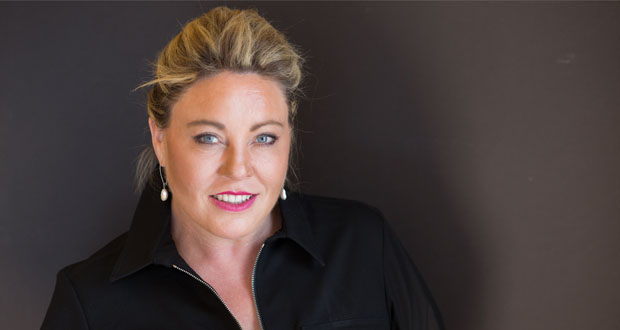Embrace the change. Embrace technology. Be a leader. These are the messages from ACN chief executive Kylie Ward.
Ward gave the opening address to the packed out Nursing Expo at Australian Healthcare Week. Entitled 'The Future and Nursing', she asked the nurses in attendance to imagine what year 2030 looks like for nursing.
Ward said that healthcare is always at least 10 years behind development and innovation, meaning nurses have to work quickly to catch up.
Ward believes that nurses need to be involved in public debate as they are socially minded and are best placed to know what the population want.
And with 24 million nurses worldwide, Ward said, it is important that nurses are placed on boards of all of the top 100 ASX companies to try to influence policy, as currently we navigate "an antiquated and clunky” healthcare system.
Ward also touched on the changing social fabric of Australia.
“Nurses are the most non-judgemental and accepting people I know,” she said.
As a diverse group, nurses need to be at the forefront of accepting diversity – ethnic, gender and otherwise – and this includes addressing the gender imbalance in the nursing workforce, Ward said.
Modern nursing is nearly 200 years old, she said, and as we enter an unprecedented period of change with technology and an ageing population, nurses need to lead the way in which care is delivered, even if it means putting themselves out of a job in favour of a healthy community.
Technologically speaking, Australia is 20 to 25 years behind other countries Ward continued.
She believes the health industry needs to embrace AI, biometrics, co-bots – "Sometimes I would prefer a co-bot to some of my colleagues,” she joked – because if we can’t get the numbers needed in the workforce we need to embrace these technologies.
Embracing disruptive technologies such as driverless cars could reduce road-based trauma and fatalities, and again, this could lose nurses business, so we need to plan for that world, now, she urged the audience.
When asked by Nursing Review what she saw as the biggest future nursing disrupter, Ward said that it will be that oft-maligned generation of people who lead the charge.
“I hope the millennials, to be honest," she said.
“I also think that artificial intelligence will drive care. We actually want to change the business model and the funding model; this should be the biggest disrupter.
“Because people then can access nursing as a point of care, rather than going through a medically dominated model. If our government is brave enough, that will be a game changer for Australia, and Australian communities,” she said.
At breathless pace Ward listed off many factors that will change nursing in the coming years.
Chat-bots as a point of care, globalisation of regulation, self-care for nurses, nurses prescribing medication (which according to Ward is currently in the works) and medical tourism.
Importantly, Ward believes that decentralising healthcare, getting away from the hospital and bringing treatments into the home, will broaden access to healthcare and help in closing the gap in regional and remote communities.
All of these things will contribute to a future that will see people in this room who will live to 100 years of age, and their kids will live to 120 and by 2030 the average person will be a 34-year-old Indian male, she said.
When asked by Nursing Review what skills the nurse of 2030 will need, Ward said: “Definitely nursing informatics, understanding how to be a clinical analyst and use data analytics to really drive community care, to work in integrated communities looking at housing, looking at employment, looking at many factors that build healthy communities.
“We can look after someone's health, but if they have social isolation or they don't have a job or they don't have good water or access, then you're never really going to really address health. We need to look at health in the context of the broader community.”
She finished her speech by reminding the nurses present that they can be leaders. “Nobody drifts towards greatness,” she said, it takes hard work.
Do you have an idea for a story?Email [email protected]
 Aged Care Insite Australia's number one aged care news source
Aged Care Insite Australia's number one aged care news source

